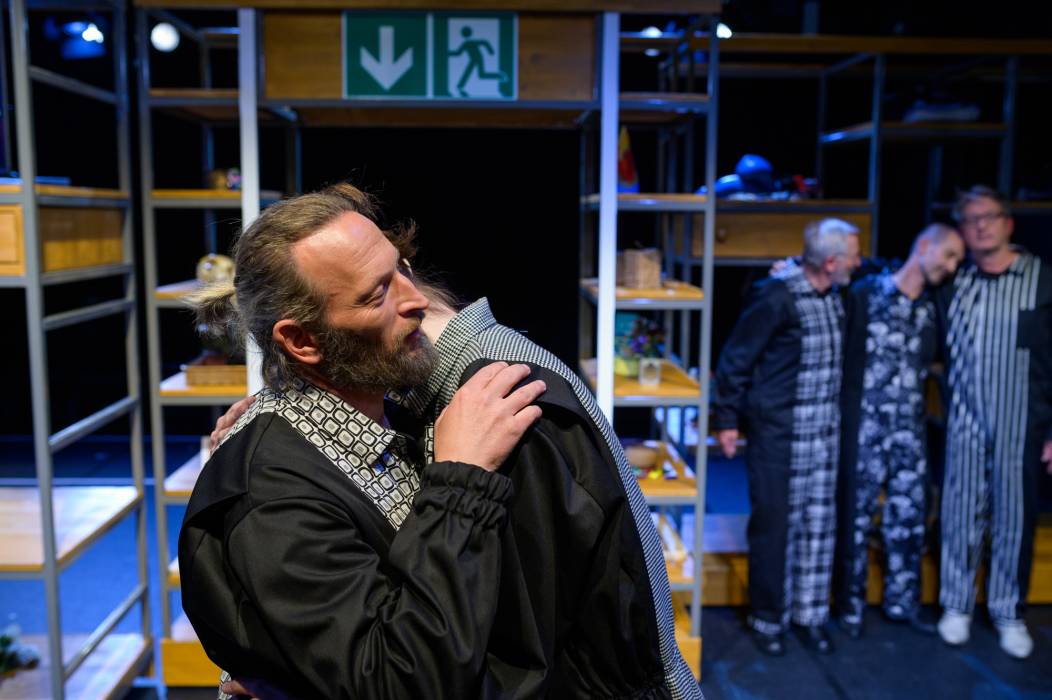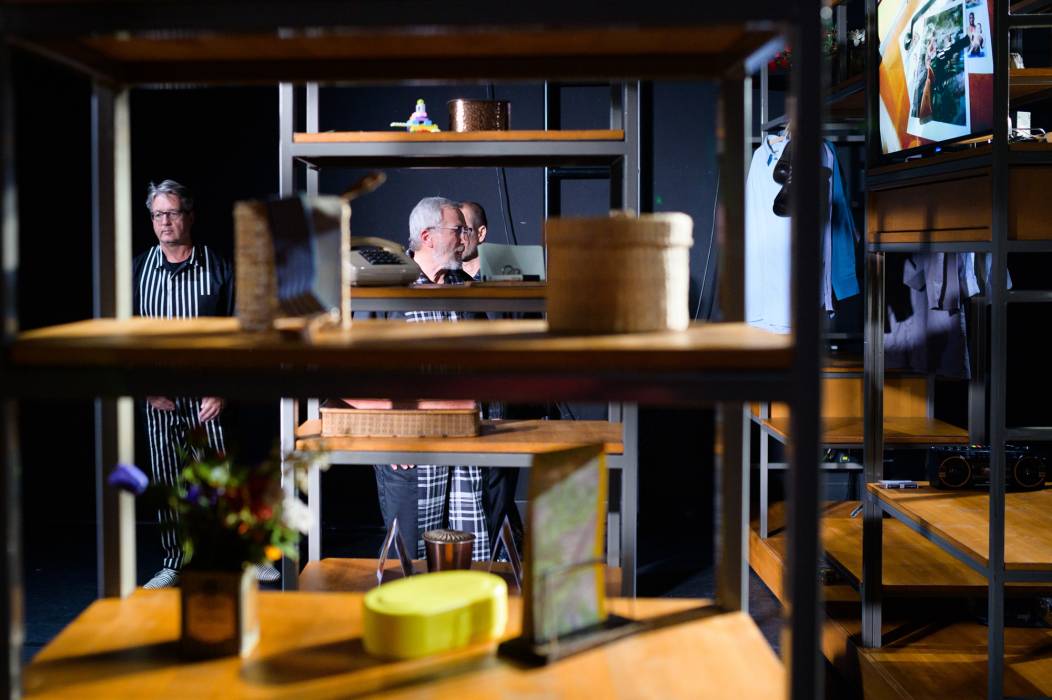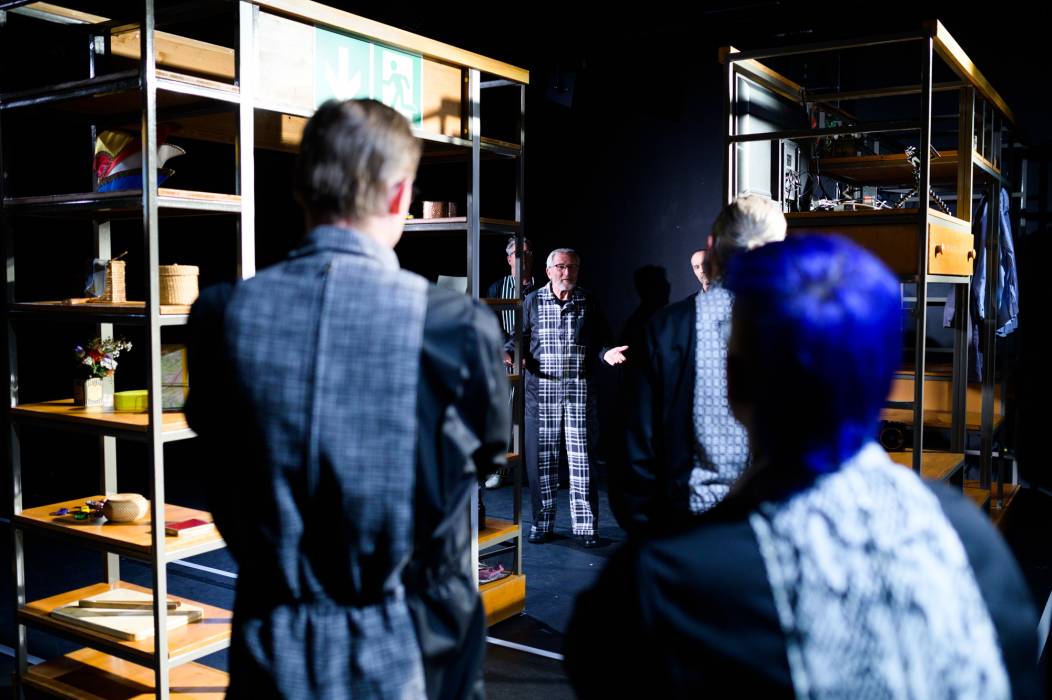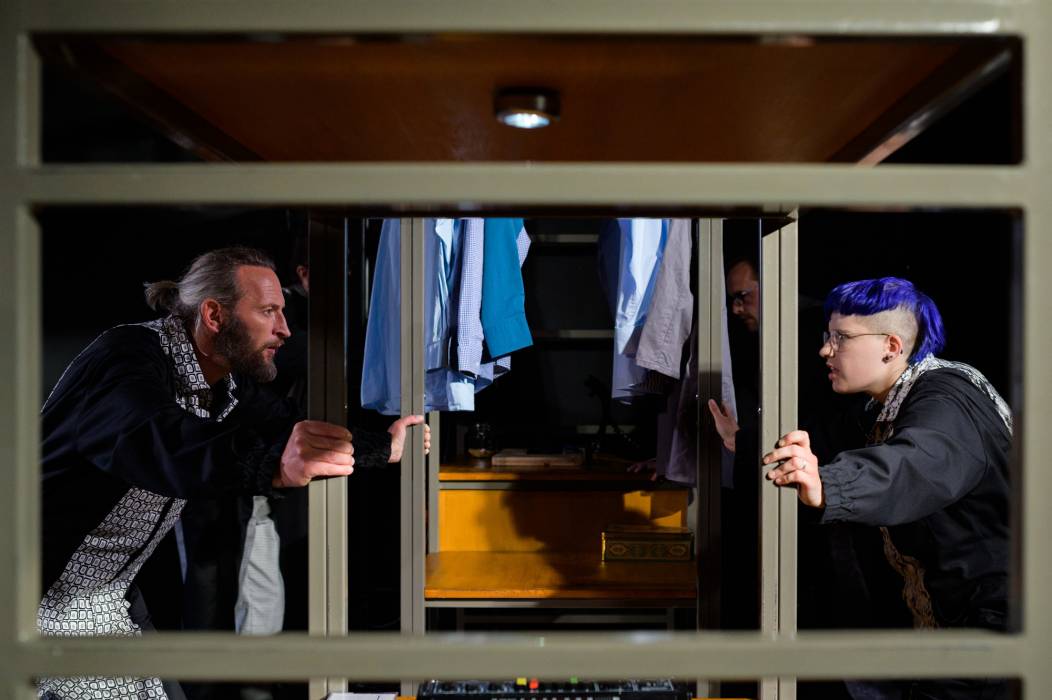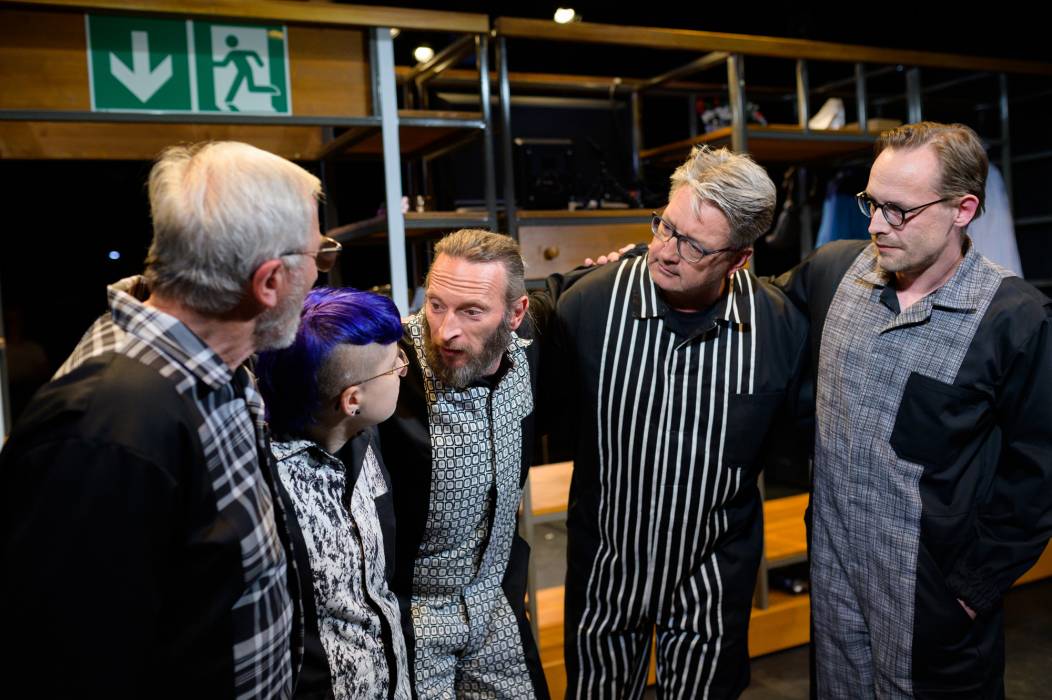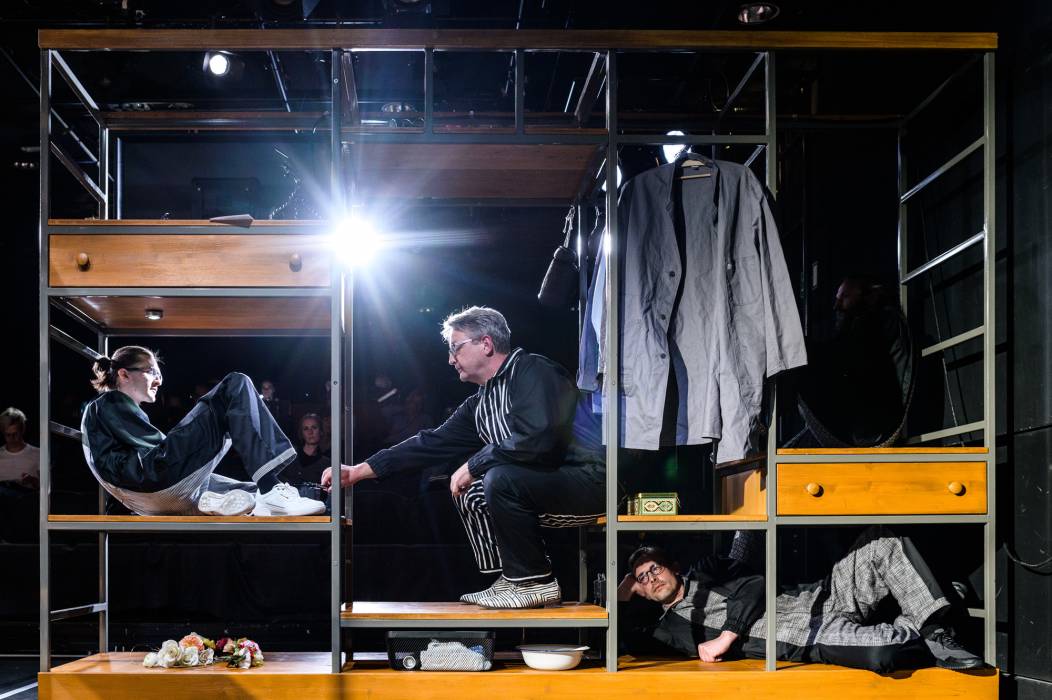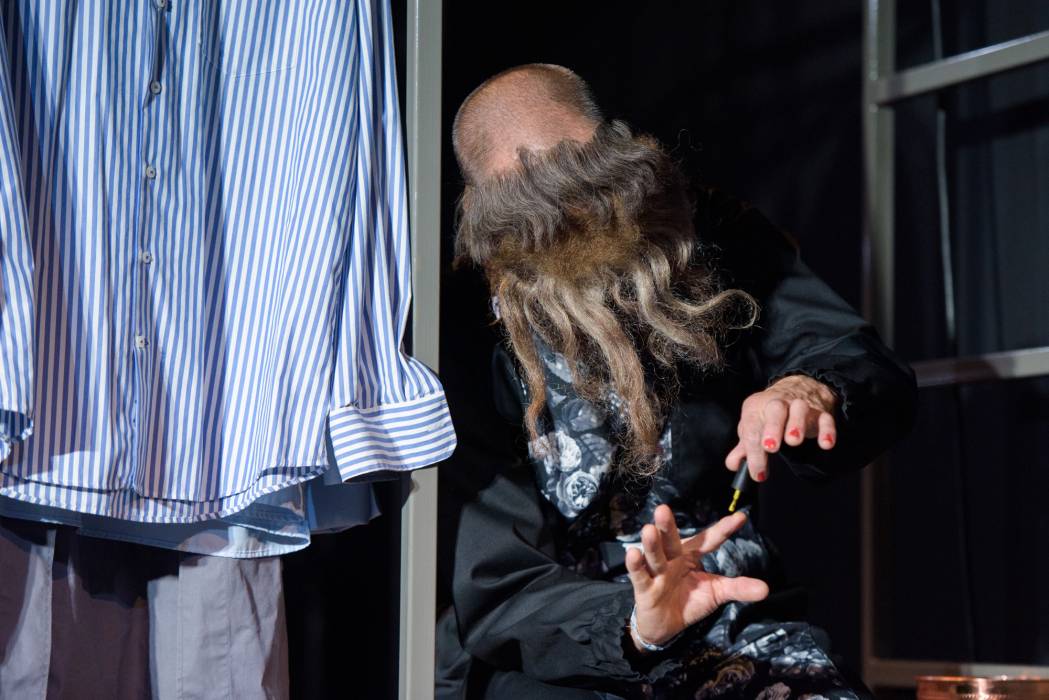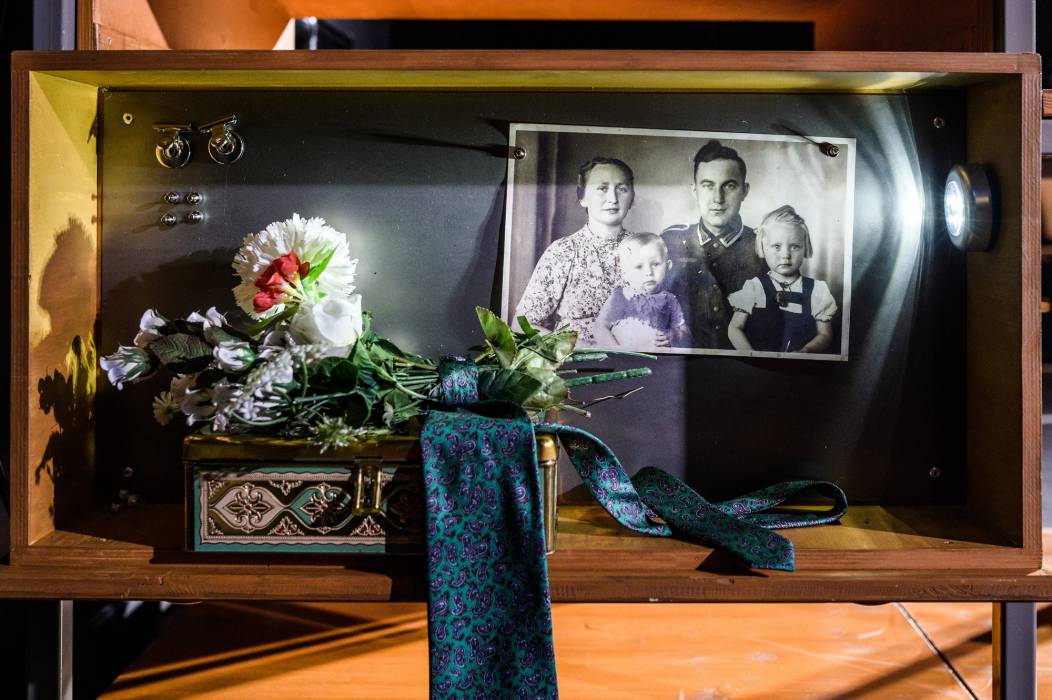»Stephan Mahn führt umsichtig Regie und die Laiendarsteller mit Dramaturgin Angelika Andrzejewski zu einer höchst bemerkenswerten Leistung. (…) Sieben Individualisten finden über ihr engagiertes Spiel zu einer geschlossenen Ensembleleistung. Sieben Männer, - jeder reflektiert, reagiert, interpretiert auf seine Art. (…) Das ist erhellend, mitunter vergnüglich anzusehen. (…) Minutenlanger Applaus belohnte ihren Mut, Inneres offen zu legen.«
(Thüringer Allgemeine, 9.6.2022, Christiane Weber)
- Stephan Mahn (Regie)
- Petra Linsel-Mahrer (Bühne & Kostüme)
- Philipp Münnich (Sound und Musik)
- Angelika Andrzejewski (Dramaturgie)
- Emily Weschke / Lena Kratz (Projektassistenz)
- Francis-Romeo Behnemann
- Bernhard Grobe
- Frank Grobe
- Mio Klingbeil
- Ralf Lohmüller
- Mario Schulz
- David Vogel
